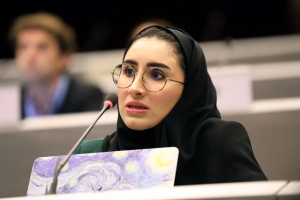The Body mandated by the Paris Agreement to set up a new UN carbon market has agreed mandatory environmental and human rights safeguards early into a five-day meeting in Baku.

These protections will require those participating in the UN’s Paris Agreement Crediting Mechanism to identify, evaluate, avoid, minimise and mitigate potential risks associated with projects.
The new rules mean environmental and social rights will be protected through a mandatory tool – known as the Sustainable Development Tool – that assesses and monitors project impacts throughout their lifespan.
This move by the Article 6.4 Supervisory Body completes work on a historic set of safeguards and procedures, while earlier this year, they agreed on a procedure that further safeguards human rights by allowing people affected by UN carbon market projects to appeal decisions or file complaints.
“These new mandatory safeguards are a significant step towards ensuring that the UN carbon market we are building contributes to sustainable development without harming people or the environment,” said Maria Al Jishi, Chair of the Supervisory Body responsible for implementing the Paris Agreement Crediting Mechanism. “These safeguards will not remain static – we aim to continue to iterate and strengthen them over time.”
“This work underlines our commitment to environmental and human rights protections in the mechanism, and it’s doubly significant because it’s the first compulsory standard for a UN carbon market, agreed at the UN level,” said Martin Hession, Vice-Chair of the Supervisory Body.
In the coming days, the Supervisory Body is also aiming to finalise two other key documents required for the full operationalisation of the mechanism related to methodological requirements and activities involving removals.
Next steps
The Article 6.4 Supervisory Body has concluded discussions on the Sustainable Development Tool and aims to formally adopt it at the end of their meeting in Baku on Wednesday, October 9, 2024.
The Body will review and update the tool every 18 months, continuously improving it based on feedback from stakeholders and building on safeguards over time.
Further information
- The Paris Agreement Crediting Mechanism (also known as Article 6.4) is a carbon crediting mechanism established under the Paris Agreement. It allows countries to raise climate ambition and implement national action plans more affordably. It identifies and encourages opportunities for verifiable emission reductions, attracts funding to implement them, and allows cooperation among countries and other groups to conduct and benefit from these activities.
- The Paris Agreement Crediting Mechanism has a Supervisory Body tasked with developing and supervising the requirements and processes needed to operationalise it. This includes developing and/or approving methodologies, registering activities, accrediting third-party verification bodies, and managing the Article 6.4 Registry.
